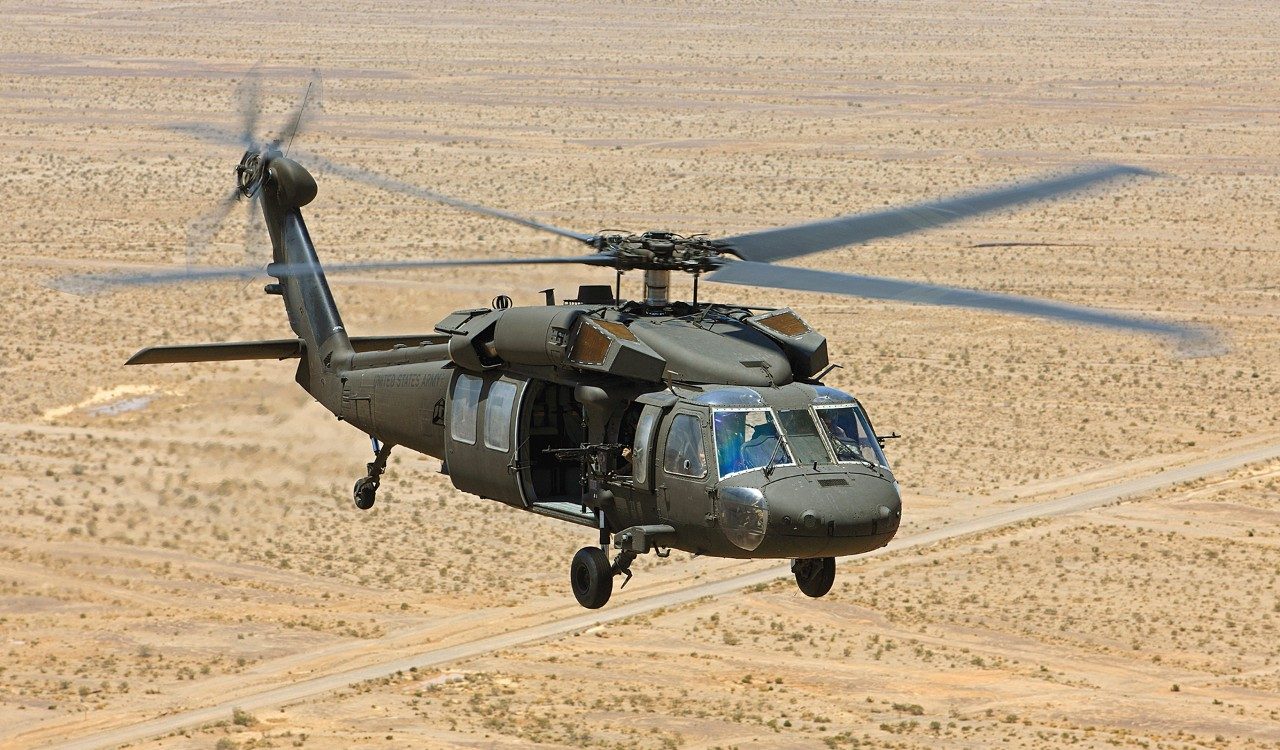The Role of UH 60 in Modern Armed Force Operations
The Role of UH 60 in Modern Armed Force Operations
Blog Article
The Role of Airplane fit Global Transportation and Profession Characteristics
Through the facility of durable air cargo networks, organizations can now browse global markets with amazing rate and agility, consequently redefining supply chain strategies. As we check out the complex effects of airplane on global profession, it is essential to think about exactly how these aspects will certainly form the future landscape of aeronautics and its role in the economic climate.

Development of Air Transport
The evolution of air transport has been marked by considerable technological innovations and advancements that have changed the way individuals and products relocate throughout the globe. From the Wright siblings' first powered trip in 1903 to the development of supersonic jets, each landmark has emphasized the ruthless search of effectiveness and rate in air travel. Early airplane were mainly rudimentary, restricted by engine power and architectural integrity. Nevertheless, the intro of innovative materials and aerodynamics in the mid-20th century resulted in significant improvements in airplane performance, security, and integrity. uh 60.
The last component of the 20th century experienced the introduction of business aeronautics as a sensible setting of transportation, identified by the introduction of jet engines, which transformed air traveling by substantially lowering trip times. In addition, technologies in navigating and communication technologies have enhanced functional performance and security, enabling more complex flight courses and timetables. The increase of air freight in parallel with passenger services has actually further underscored the convenience of aeronautics. As we seek to the future, emerging technologies such as electric and independent aircraft assurance to redefine the air transport landscape, guaranteeing continued advancement and adaptation to global needs.
Effect On Global Trade
Air transport has profoundly improved international trade by helping with the swift movement of items throughout vast distances. This expedited logistics capacity allows organizations to respond rapidly to market needs, therefore improving supply chain efficiency. The ability to transport subject to spoiling products, high-value items, and time-sensitive products has actually opened up new markets and opportunities for different sectors, significantly influencing profession patterns.
In addition, the development of air freight networks has actually fostered globalization, enabling firms to resource products and products from various parts of the world effortlessly. This interconnectedness lowers preparations and prices, allowing organizations to continue to be affordable in a progressively worldwide marketplace. In addition, air transportation plays a crucial function in e-commerce, where customer assumptions for quick distribution have actually driven a rise sought after for air cargo services.
The effect of airplane on international trade expands to the development of tactical profession paths, connecting areas and promoting worldwide collaborations. Countries that invest in air transport infrastructure often experience boosted economic development and increased foreign straight financial investment. Generally, the evolution of air transportation has not just changed the logistics landscape but has likewise end up being a vital component in the characteristics of global trade.

Economic Advantages of Aviation
A durable aviation industry creates considerable economic benefits, contributing to task development, tourism, and overall economic development - uh 60. The air travel sector sustains numerous work around the world, varying from direct work in airlines and flight terminals to indirect functions in fields such as friendliness, transportation, and logistics. According to industry records, for every single task in the aviation sector, around 3.5 extra work are developed in the wider economic climate
Tourism is a crucial aspect of the financial advantages originated from aeronautics. Flight assists in global tourism, enabling tourists to explore varied locations, which subsequently promotes local economic situations. Nations that buy their air travel framework often experience enhanced visitor arrivals, resulting in greater spending on services such as hotels, destinations, and dining establishments.

Additionally, aviation enhances international connectivity, making it possible for companies to access brand-new markets and sources effectively. As a result, sectors such as shopping and production advantage profoundly from trustworthy air transport, additional driving financial expansion.
Challenges Encountering the Aeronautics Sector
Browsing a complicated landscape of regulative, environmental, and financial difficulties, the aeronautics sector encounters substantial hurdles that intimidate its sustainability and growth. Rules surrounding safety and safety and security are continuously advancing, necessitating recurring conformity and adjustment from manufacturers and airlines (uh 60). This can lead to increased functional prices and source appropriation that diminishes advancement and expansion efforts
In addition, environmental problems have actually ended up being paramount, with growing scrutiny over carbon emissions and environmental pollution. The market is under stress to embrace greener techniques and modern technologies, which frequently need significant financial investment in research study and development. Stabilizing these environmental obligations with the need for air traveling provides a considerable obstacle.
Financial fluctuations, such as rising gas costs and geopolitical uncertainties, further make complex the landscape. visit this page Airline companies regularly come to grips with unpredictable operating expenses and fluctuating traveler need, which can impact productivity and long-lasting preparation. Labor shortages and skill voids in crucial locations add one more layer of complexity, hindering functional performance.
Inevitably, attending to these diverse difficulties is essential for the aeronautics industry to keep its essential role in worldwide transport and trade, while guaranteeing strength and flexibility in an increasingly open market.
Future Fads in Flight
Emerging innovations and moving consumer choices are positioned to improve the future of air traveling considerably. The combination of expert system and machine learning is expected to improve functional efficiency, streamline airport terminal processes, and boost customer support. Anticipating analytics will certainly promote much more precise demand forecasting, enabling airlines to enhance flight routines and prices designs.
Sustainability is ending up being a crucial motorist in flight, with the air travel market progressively concentrated on minimizing carbon discharges. Advancements in aircraft design, such as electric and hybrid propulsion systems, are being discovered to fulfill ecological targets. Additionally, the adoption of lasting aviation fuels (SAFs) is expected to play a vital function in achieving net-zero emissions by 2050.
Consumer choices are shifting in the direction of personalized traveling experiences. Airlines are buying innovative This Site information analytics to check it out customize services and improve customer involvement, making sure an extra personalized trip from reserving to arrival. Furthermore, the surge of remote job may lead to enhanced need for leisure traveling, as people seek to incorporate work and holiday.
Conclusion
Finally, aircraft significantly influence worldwide transport and profession dynamics by assisting in quick movement and improving supply chain effectiveness. The evolution of air transport has actually changed global profession, yielding considerable economic advantages while additionally providing obstacles that need calculated management. Future fads show a continued dependence on air travel for business, underscoring its important duty in globalization and economic growth. The ongoing adaptation of the aviation market will be essential for maintaining its contributions to the worldwide economic situation.
The latter component of the 20th century observed the introduction of commercial aeronautics as a viable setting of transportation, characterized by the introduction of jet engines, which transformed air traveling by substantially lowering flight times. The rise of air cargo in parallel with traveler solutions has actually additionally emphasized the versatility of aviation. Additionally, air transportation plays a vital function in shopping, where customer assumptions for rapid distribution have actually driven a rise in demand for air products services.
Generally, the development of air transportation has not only transformed the logistics landscape but has also become a vital element in the dynamics of worldwide profession.
Sustainability is coming to be a vital vehicle driver in air traveling, with the air travel market progressively focused on minimizing carbon discharges.
Report this page